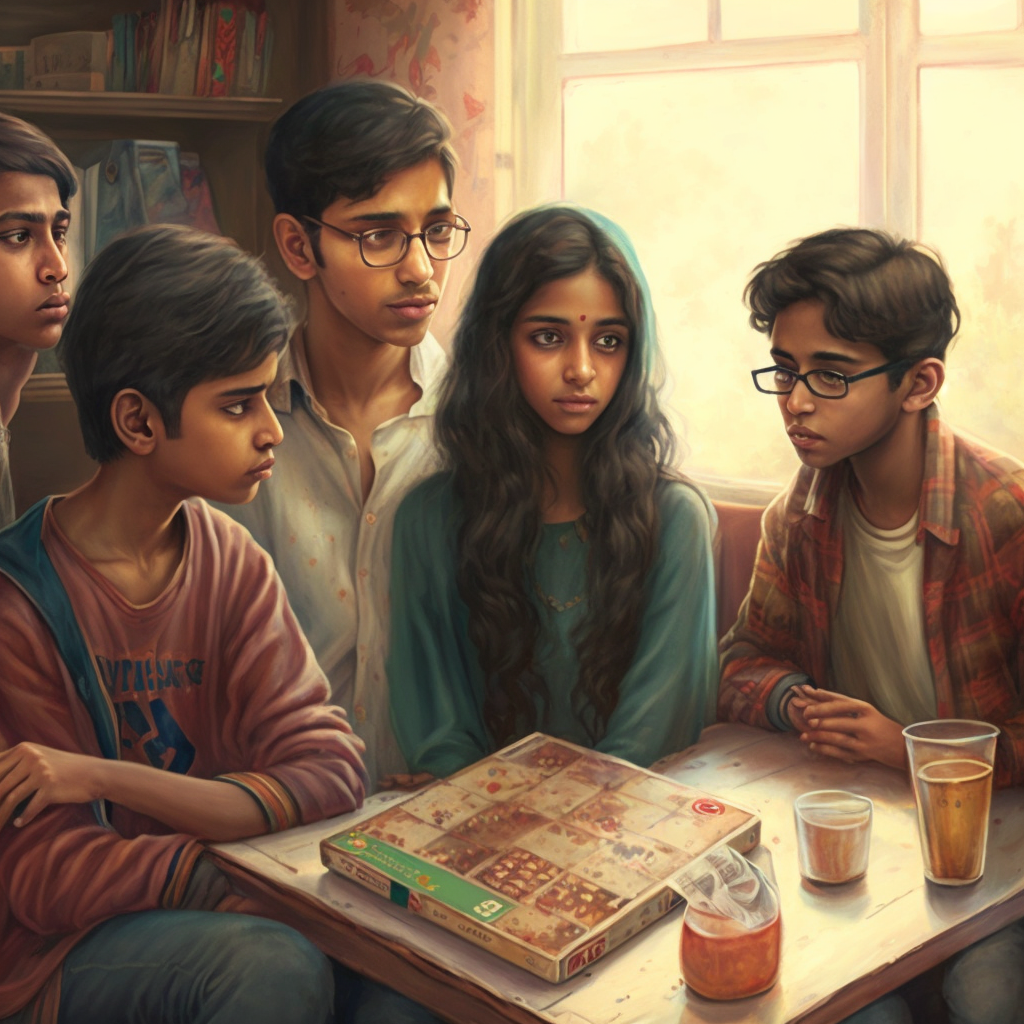Game nights, Potlucks, Parties
A warm summer evening in the United States, a myriad of colors filled the sky as the sun dipped below the horizon. Arjun sat cross-legged on the floor, surrounded by a group of fellow Indians who had become his closest friends since he moved to the US for his Masters. They were all engineers, working for top tech companies in Silicon Valley, living the American dream.
As they chatted and joked, they reminisced about their journey to the United States and the motivations that had driven them to leave their homeland. Arjun, like many others from his generation, was drawn to the allure of the American dream. The desire to leave his homeland and venture into the unknown was rooted in the concept of “mimetic desire,” an idea that suggests our wants and aspirations are influenced by the desires of others around us. Influenced by the desires of friends and family, he believed that success and happiness could only be found overseas, in a land that promised the fulfillment of dreams.
Upon arriving in the United States, Arjun quickly formed bonds with other Indian students who shared his background and experiences. As they found stability in their careers, they discovered comfort in the familiarity of their roots. Together, they created a close-knit community to unwind and maintain a connection to their shared heritage. These gatherings, which became an integral part of their lives, offered a respite from their 9-5 jobs and allowed them to strengthen their connections with one another.
This was one of them, a potluck and a game night. Sunita had brought her famous butter chicken, while Rohit had made paneer tikka. Anjali’s dosas were a bit dry but the chutney made up for it. They were planning to play Catan for the day, the notoriously long game which makes you question life.

Beneath the laughter and the shared memories, Arjun began to feel a growing sense of unease about the life he was building. He couldn’t shake the nagging feeling that they were becoming overly focused on the routines of their daily lives, losing sight of the dreams and aspirations that had brought them to the US in the first place. Today was game night, two days ago there was that event in Downtown with Ed Sheeran and last week was when they all went to Big Sur with a bunch of visiting friends.
As the night progressed, the conversation inevitably steered towards the daunting H1B lottery. The uncertainty that surrounded their lives became palpable in the room. With furrowed brows and concerned faces, they discussed the H1B visa lottery system and the excruciatingly long wait for green cards, issues that cast an ominous shadow over their futures. As Arjun listened intently to his friends’ experiences, he began to reevaluate the merits of remaining in the US. Considering the burgeoning optimism in India and the diminishing gap in opportunities between both countries, he wondered if it was truly worth enduring a life of uncertainty and monotony when an exciting and dynamic world was unfolding back home.
Later, as Arjun lay in bed, his thoughts were a swirling mix of confusion, sadness, and uncertainty. He longed for the comforts of home and the promise of a brighter future in India, but he also feared losing everything he had worked so hard to achieve in the US. With a heavy heart, he realized that there would be no easy answers, no perfect solutions to the questions that haunted him. Arjun returned to the familiar rhythms of his life with a sigh – game nights, potlucks, and parties – trying to find solace and strength in the bonds he had formed with his fellow Indians, all the while grappling with the consequences of his decisions and the elusive nature of happiness in a world that was constantly changing.